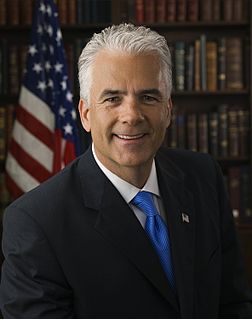A Quote by Alex Steffen
We get so little news about the developing world that we often forget that there are literally millions of people out there struggling to change things to be fairer, freer, more democratic, less corrupt.
Related Quotes
Right now, the technological world plus God or spirituality is evolving. I think America has become a little bit too corrupt, government's a little too corrupt, too greedy. Many corporations are too greedy. The labor unions are too greedy. That effects charities and religious organizations. I just think it's greed. That's why, in 1985, I had to figure out how to give before I received. The more I focus on giving, for less and less, the more and more I make.
If there's a world here in a hundred years, it's going to be saved by tens of millions of little things. The powers-that-be can break up any big thing they want. They can corrupt it or co-opt it from the inside, or they can attack it from the outside. But what are they going to do about 10 million little things? They break up two of them, and three more like them spring up!
A little more kindness, A little less speed, A little more giving, A little less greed, A little more smile, A little less frown, A little less kicking, A man while he's down, A little more "We", A little less "I", A little more laugh, A little less cry, A little more flowers, On the pathway of life, And fewer on graves, At the end of the strife.
If you want the best things to happen in corporate life you have to find ways to be hospitable to the unusual person. You don't get innovation as a democratic process. You almost get it as an anti-democratic process. Certainly you get it as an antithetical process, so you have to have an environment where the body of people are really amenable to change and can deal with the conflicts that arise out of change an innovation.
There's too many people that paint with a broad brush that we're all corrupt, we're all amoral. … And having these kinds of things happen, whether it's a Republican or Democratic senator — we certainly have had plenty of Democratic scandals in the past — we need people who are in office who will hold themselves to a little higher standard.
All over the US, there is a need to teach young people to, really, get them out in the backyard, building treehouses, fixing bicycles, because you become a better, more well-rounded, Renaissance personality if you actually know how to do things with your hands. If you can fix the screen door or replace your old garbage disposal, even change the tire on a car, a lot of people don't even know how to do that. We're literally running out of people who know how to do those things, the essential things like plumbing, carpentry, stone masonry, we're literally running out of them.
John Sculley ruined Apple and he ruined it by bringing a set of values to the top of Apple which were corrupt and corrupted some of the top people who were there, drove out some of the ones who were not corruptible, and brought in more corrupt ones and paid themselves collectively tens of millions of dollars and cared more about their own glory and wealth than they did about what built Apple in the first place which was making great computers for people to use.
The more often we see the things around us - even the beautiful and wonderful things - the more they become invisible to us. That is why we often take for granted the beauty of this world: the flowers, the trees, the birds, the clouds - even those we love. Because we see things so often, we see them less and less.
Your mind has a way of not letting you forget things you wish you could. Especially with people. Like, you'll always try your best to forget things that people say to you or about you, but you always remember. And you'll try to forget things you've seen that no one should see, but you just can't do it. And when you try to forget someone's face, you can't get it out of your head.
Fast fashion, whilst having increased the accessibility of stylish clothes for millions, has unfortunately resulted in many horrific practises, such as child labour, that exploit millions of people around the world in poorer, developing countries. This something that has to change, and we can all start by reflecting on where our clothes come from.





































